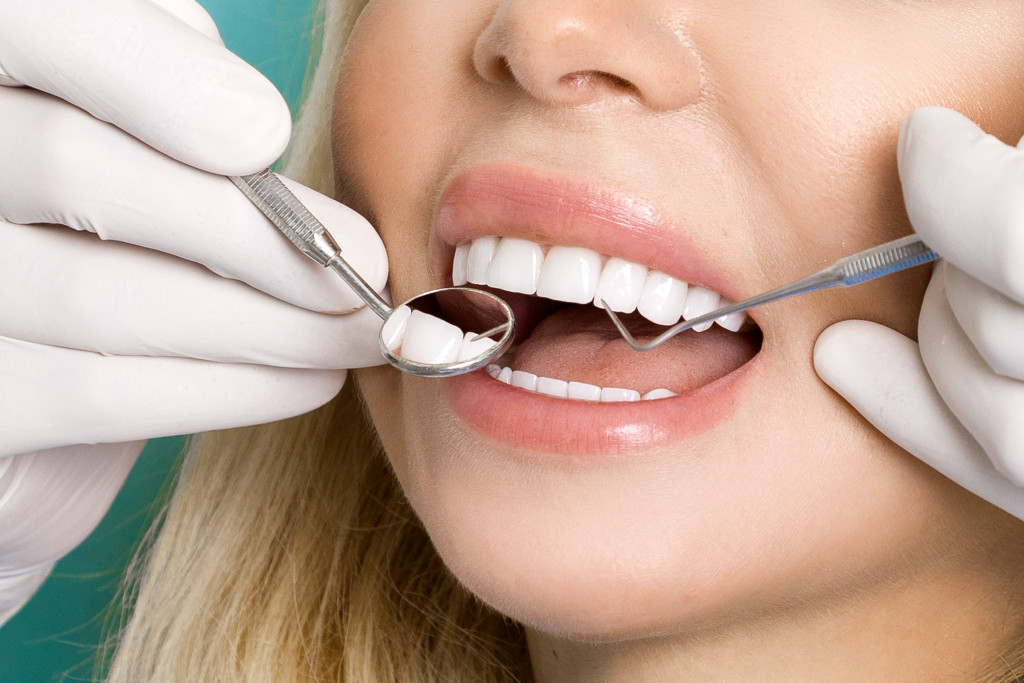
We frequently believe that leading a healthy lifestyle entails eating a balanced diet and getting as much exercise as possible.
Although both are essential for good health, we frequently overlook the importance of oral health and how it affects our entire health. Oral diseases can have a severe impact on both our general health and our oral health.
To maintain your mouth in good health, you’ll need more than a toothbrush and floss. Genetics and systemic disorders are all factors that can affect how well your smile endures over time.
However, your daily behaviors might significantly impact your oral health. If your dental health is a concern, these easy lifestyle modifications can have a good impact on both your mouth and your overall health.
1. It Is Important to Maintain a Healthy Diet
A balanced diet is vital for overall health, but did you know that it also affects your teeth? It is critical to consume a variety of vegetables and fruits and wholegrain versions of starchy meals such as pasta, potatoes, and bread.
Beans, fish, meat, eggs, and some dairy should all be included as sources of protein. To keep teeth and gums healthy, one should avoid fat and sugar as much as possible. The vitamins and minerals found in these foods help to maintain dental health.
2. Restrict Tobacco Consumption
Tobacco Cigarettes and chewing tobacco use can negatively damage your oral health. According to a study, smoking may be responsible for 38.5 percent of gum disease progression. Gum disease can lead to tooth loss, severe pain, and systemic health issues if left untreated.
Tobacco usage can make your mouth dry, leading to tooth decay. It also discolors teeth and impairs taste and smell. Many smokers are entirely unaware of their foul breath! Tobacco, including cigarettes and other kinds of tobacco, is one of the most common causes of mouth cancer.
3. Limit Your Sugar Intake
Sugar is the most common cause of tooth decay. Bacteria in your mouth convert sugar to acids, which erode your teeth. Acids eat away at the surface of a tooth, eroding the enamel, weakening the tooth, and producing decay in the form of holes or cavities over time.
Worst of all, sugar is found in practically everything! As a result, it’s critical to study food labels and determine the specific contents of products; you might be shocked. The primary sugar sources are fizzy beverages/soft drinks, sports drinks, fruit juices, flavored milk, energy drinks, and some processed meals.
As a general rule, make sure you know what you’re eating: limit soft drinks, sip through a straw if at all feasible, brush your teeth with fluoride toothpaste, and rinse your mouth with water or mouthwash regularly.
4. Improve Your Brushing Habits

Inconsistent brushing practices can result in a wide range of oral health issues, including poor breath, mouth infections, cavities, tooth loosening, and more.
The PH of the oral cavity decreases after eating, activating harmful bacteria and putting oral health at risk. As a result, brushing or rinsing after meals is always recommended.
Brushing twice a day and using mouthwash afterward can help reduce plaque buildup on teeth. Plaque serves as an attachment platform for bacteria and a possible harmful location.
Tongue washing should be a part of our daily brushing routine to prevent the risk of diseases such as candidiasis, hairy tongue, halitosis, and others.
5. Visit Your Dentist Every Six Months
A dental visit is divided into two sections. As part of a standard checkup, the dentist will examine your whole oral condition, including your teeth, gums, and tongue. To obtain a better understanding of what’s going on within your mouth, they’ll take X-rays.
The dentist will then clean your teeth using various equipment such as scrapers and small mirrors to remove any plaque or tartar buildup. The dentist will provide you with a treatment plan and make appointments in case you need to wear any ortho appliances.
6. Consume a Lot of Water
Water, particularly fluoridated water, can aid in oral health. Drinking water helps wash away the germs and acid that cause tooth decay in your mouth. It also keeps your mouth moist, which prevents bacteria from forming.
If you want to reap even more benefits, rinse your mouth with water after each meal, particularly after eating sweet meals. This will aid in the removal of sugary food particles from your mouth, which can promote tooth decay.
When it comes to maintaining your teeth and gums, excellent dental hygiene is only the first step; you should also avoid cigarettes, get plenty of rest, stay active, and eat healthy meals to keep your smile in good shape.
